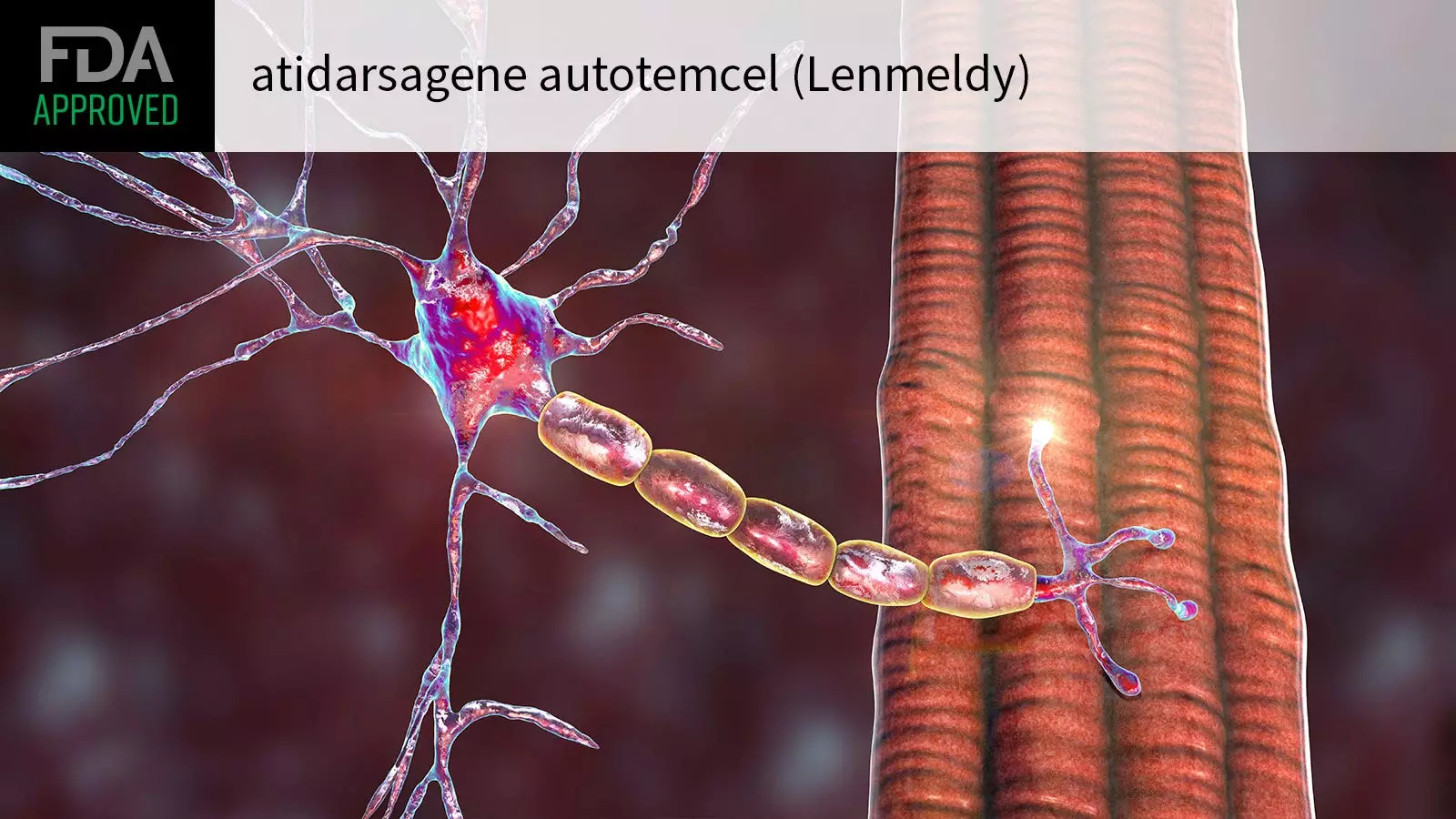The recent approval by the FDA of atidarsagene autotemcel (arsa-cel; Lenmeldy) marks a significant milestone in the treatment of children with metachromatic leukodystrophy (MLD). This gene therapy is the first of its kind to address children with pre-symptomatic late infantile, pre-symptomatic early juvenile, or early symptomatic early juvenile MLD. The announcement has sparked hope in the medical community for a viable treatment option for this rare genetic disease.
MLD is a devastating condition caused by a mutation in the ARSA gene, leading to the accumulation of sulfatides in the central and peripheral nervous systems. This accumulation results in progressive dysmyelination, neuroinflammation, and neurodegeneration, ultimately leading to the loss of motor and cognitive functions and premature death. The disease presents in three variants based on the age of symptom onset, with earlier onset and motor symptoms indicating a more severe disease course.
Arsa-cel is a one-time single-dose infusion generated from the patient’s hematopoietic stem cells, which have been genetically modified to carry functional copies of the ARSA gene. This innovative approach aims to address the underlying genetic mutation causing MLD by restoring enzymatic function, thereby halting or slowing disease progression. The safety and efficacy of arsa-cel were demonstrated in clinical trials involving 37 children, showing promising results in comparison to natural history data.
Children with pre-symptomatic late infantile MLD who received arsa-cel had significantly better outcomes compared to those who did not receive treatment. The therapy reduced the risk of severe motor impairment or death, with all treated children alive at 6 years compared to only 58% in the natural history group. Additionally, treated children exhibited improved motor and cognitive functions, including the ability to walk without assistance and normal language and performance IQ scores.
While arsa-cel has shown promising results, there are potential risks associated with the treatment. Common adverse events include fever, low white blood cell count, mouth sores, respiratory infections, and rash, among others. Patients are advised to undergo monitoring for potential complications such as blood clots, encephalitis, and the risk of blood cancer. Lifelong surveillance for hematologic malignancies is recommended, including regular blood counts and site analysis for at least 15 years post-treatment.
The approval of atidarsagene autotemcel (arsa-cel; Lenmeldy) by the FDA represents a significant breakthrough in the treatment of children with MLD. This gene therapy offers hope for improved outcomes and a potential halt in disease progression for patients with this rare genetic disorder. While there are risks associated with the treatment, the benefits of arsa-cel in preserving motor and cognitive function are promising. Continued research and monitoring are essential to ensure the long-term safety and efficacy of this innovative therapy.



Leave a Reply